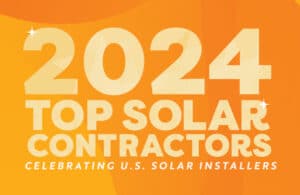You’re interested in solar-that’s great! But are you having trouble sorting through the data and numbers to determine how many solar panels you need to power your Cape Cod home? My Generation Energy is here to help. With over a decade of experience, we can guide you through the entire process, starting here with these tips to help you find out how much solar power you need.
How To Determine How Many Solar Panels Your Home Needs
The ultimate goal with residential solar is to cover 100% of your electricity costs-which is a possibility in Cape Cod under the right conditions. Before you begin calculating the required number of solar panels, however, there are a few things to consider:
- Your average electricity consumption
- How many peak sun hours your home gets, on average
- Solar panel power
After you have these numbers, you can do a quick equation to reach an estimated amount of solar panels needed for your house. Here is what you will calculate:
Let’s dive into what each of these are and how they apply to determining the amount of solar panels your home needs.
Electricity Consumption
Measured in kilowatt-hours (kWh), your electricity consumption is impacted by how much you use your air conditioner, kitchen appliances, and anything else that uses electricity. When you’re determining your energy consumption, it’s important to consider the average throughout an entire year since electricity usage varies from month to month.
To find out your electricity consumption, check your recent utility bills or check with your provider. Take the total usage during a period, and divide it by the number of days. The average Massachusetts resident uses about 500 kWh per month-or 6,000 kWh per year.
Production Ratio
The production ratio of a solar panel system is the estimated annual output, in kWh per year, compared to the size of the system, in watts (W). This ratio is dependent on how many hours of sunlight your system will get. Since we can’t accurately predict the weather an entire year in advance, the production ratio is mainly based on the average peak sun hours your location gets.
Peak sun hours in Massachusetts average about 3.84 hours per day though that varies throughout the state. The best way to determine the production ratio for your home is to call in the professionals at My Generation Energy.
Solar Panel Power Rating
A solar panel’s power rating, also known as power wattage, is the electricity output, measured in W, of a solar panel. This rating is calculated based on its performance under perfect conditions-meaning lots of sun and maximum efficiency. The average power rating of today’s solar panels is between 250 and 400 W.
My Generation Energy: Your Cape Cod Solar Experts
As you can see, sizing a solar energy system is complex. Aside from these key factors, there are many other things to look at when you are considering how much solar power you need, like:
- Roof size
- Solar panel tilt
- Electric home systems





